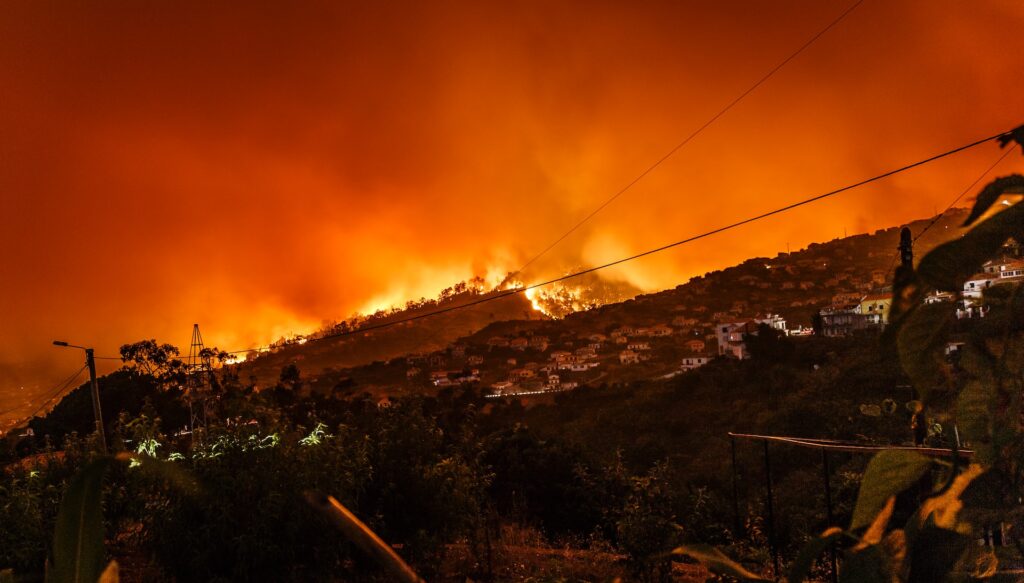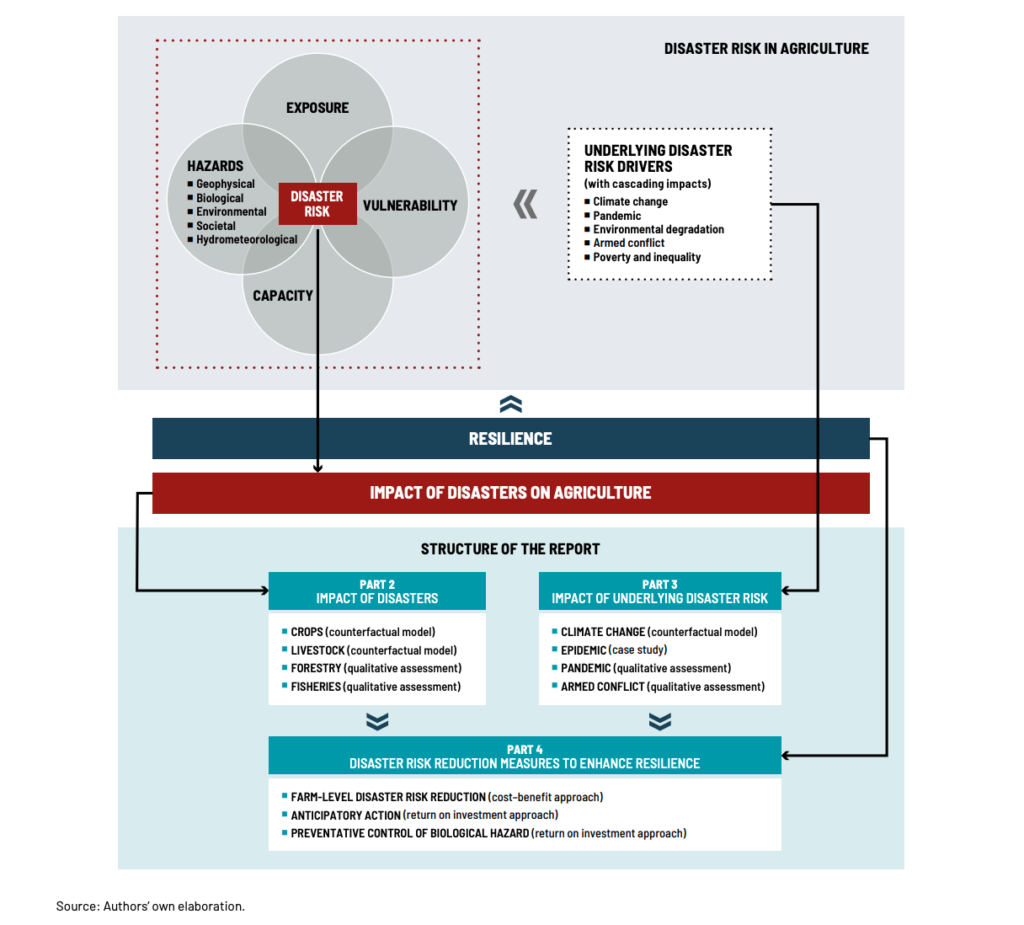The world is experiencing unprecedented damage and loss in agriculture due to disasters. The intensity of such events is increasing and is expected to worsen as the climate crisis affects our planet and biological and ecological resources continue to diminish. The unknown effects of this situation make it crucial to act now. To address this issue, the FAO has released a report titled ”Impact of Disasters on Agriculture and Food Security 2023,” which is the first-ever global-level estimate of the impact of disasters on agriculture and food security in the last three decades. The report highlights how disaster risk management can be integrated into agricultural practices.
An urgent wakeup call
Disasters are estimated to have caused a loss of USD 3.8 trillion in crops and livestock production, equivalent to an average loss of USD 123 billion annually and 5% of the annual global agricultural GDP. This loss is equal to 147 kilocalories per person per day.
Data on the impact of disasters on agriculture and agri-food systems is however partial and inconsistent, as highlighted during the launch of the report. This issue is especially problematic for the fisheries, aquaculture, and forestry sub sectors. There is a need for more and better data, to shape policies and solutions for risk reduction and resilience-building in agriculture.
Still, the report highlights that proactive, targeted investments in farm-level disaster risk reduction good practices can generate impressive results. Such practices to build resilience in agri-food systems have been found to perform over two times better than previously used practices. Anticipatory actions, informed by early warning, are also found to be cost-effective in reducing risk and mitigating the impact of disasters. For every one USD invested in anticipatory actions, rural families can gain up to USD 7in benefits and avoided agricultural losses.
During the launch, FAO Director-General QU Dongyu, emphasised that the report is a valuable addition to the FAO’s efforts towards more accurate measurement and analysis of agricultural disaster losses. The report reflects the organisation’s dedication to helping farmers and rural communities minimise the risks of natural disasters. Comprehending the interconnected risks and the factors that drive them is crucial for developing robust agri-food systems that can withstand the challenges posed by disasters.
Reducing risks and building resilience is crucial to ensuring a better future for coming generations amid increasing uncertainties.
“Our priority should be investing in, documenting, and implementing concrete solutions. This requires more scientific research and data analysis.”
When talking about the implementation of the Sendai Framework, he stressed the importance of gathering accurate and detailed data to comprehend the causes and effects of natural disasters, particularly on agriculture. This kind of data is vital as it enables policymakers to develop context-specific innovations and allows for proper planning and financing.
The FAO is working to improve coverage and standardise data collection techniques to assess the impact of extreme events on agriculture and establish tools and methodologies for regular monitoring and reporting at the national level.

